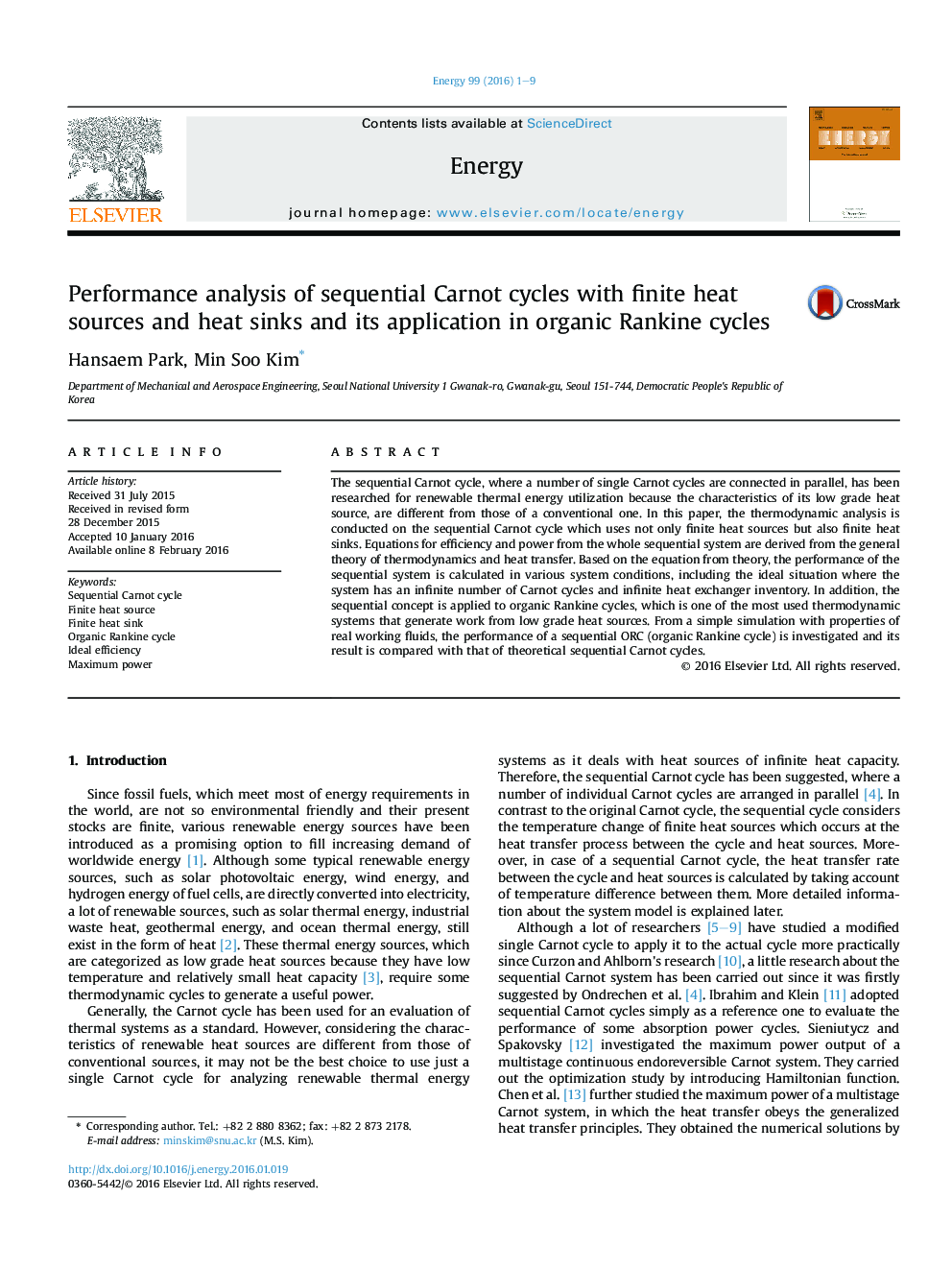| Article ID | Journal | Published Year | Pages | File Type |
|---|---|---|---|---|
| 1731311 | Energy | 2016 | 9 Pages |
•Modified sequential Carnot cycles are studied for low grade heat sources.•Both heat sink and heat sources are considered to have finite heat capacity.•Efficiency and work of sequential Carnot cycles is calculated analytically.•Simulation of sequential organic Rankine cycles are carried out.•Result of simulation accords with that of theoretical analysis.
The sequential Carnot cycle, where a number of single Carnot cycles are connected in parallel, has been researched for renewable thermal energy utilization because the characteristics of its low grade heat source, are different from those of a conventional one. In this paper, the thermodynamic analysis is conducted on the sequential Carnot cycle which uses not only finite heat sources but also finite heat sinks. Equations for efficiency and power from the whole sequential system are derived from the general theory of thermodynamics and heat transfer. Based on the equation from theory, the performance of the sequential system is calculated in various system conditions, including the ideal situation where the system has an infinite number of Carnot cycles and infinite heat exchanger inventory. In addition, the sequential concept is applied to organic Rankine cycles, which is one of the most used thermodynamic systems that generate work from low grade heat sources. From a simple simulation with properties of real working fluids, the performance of a sequential ORC (organic Rankine cycle) is investigated and its result is compared with that of theoretical sequential Carnot cycles.
